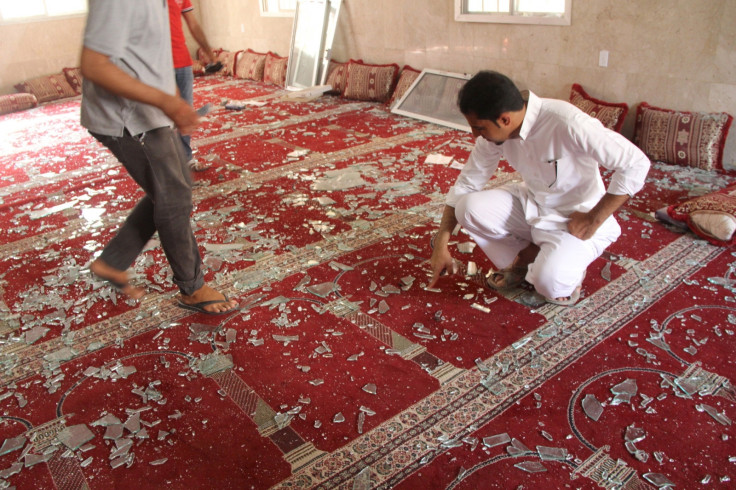Saudi Arabia: Suicide bomber attack on Shi'ite mosque in Dammam [VIDEO]

An alleged suicide attack has struck outside a Shi'ite mosque in Dammam, eastern Saudi Arabia, during Friday prayers on 29 May, one week after the deadly suicide bombing in Qatif that left 21 people dead, including two children.
The Saudi interior ministry confirmed that four people were killed after a car exploded in a parking lot near the Shi'ite Imam al-Hussein mosque in Dammam, close to Qatif. The bomber detonated his explosives after being stopped by security guards. It is unclear if the bomber was among the four.
Pictures showed black smoke billowing into the sky at the entrance of the mosque.
Explosion in imam Hussain #Shia mosque in #Dammam #SaudiArabia https://t.co/rVd7U16AOP
— Zishan Haider (@ZishanHNaqvi) May 29, 2015
Second bombing of a Shiite mosque in Saudi Arabia in a week. https://t.co/WUqSX7subN
— DavidKenner (@DavidKenner) May 29, 2015
A video posted on social media purportedly showed the moment of the explosion from inside the mosque:
لحظة التفجير الارهابي الذي استهدف مسجد العنود في الدمام ..
#تفجير_العنود pic.twitter.com/Em9kbyuwZe
— mohammad boland (@mohadboland) May 29, 2015According to initial reports, the alleged suicide bomber was disguised as a woman and attempted to blow himself up inside the women's section of the mosque.
The Islamic State (Isis) claimed responsibility for last Friday's attack that killed 21 people and injured more than 50 others. SITE monitoring group identified the suicide bomber as Abu Ammar al-Najdi.
A spokesman for the Saudi Interior Ministry said the bomber detonated a suicide belt hidden under his clothes inside the mosque causing several people to be "martyred or wounded".
"Security authorities will spare no effort in the pursuit of all those involved in this terrorist crime," the official said in a statement carried by state news agency SPA.
In March 2011, Qatif was the epicentre of Shi'ite demonstrations against what they perceived as decades of discrimination and religious and political repression from the Sunni kingdom.
It was the beginning of an uprising that was met with a crackdown, a wave of arrests, and cases of police allegedly firing on unarmed protesters.
Since then, 27 have been killed and more than 250 imprisoned, according to local Shia leaders and human rights activists in the towns and cities of eastern Saudi Arabia, who fear rising sectarianism fuelled by Riyadh's war against Shia Houthi rebels in Yemen.
There are 2.7 million Shia in Saudi Arabia, making up 12% of the population, with most living in al-Ahsa and al-Qatif districts in the country's eastern province, which also contains the bulk of the kingdom's oil.
The Qatif mosque bombing was the second attack on a Shi'ite place of worship in the Gulf kingdom after the Dalwah attack last November.
© Copyright IBTimes 2024. All rights reserved.






